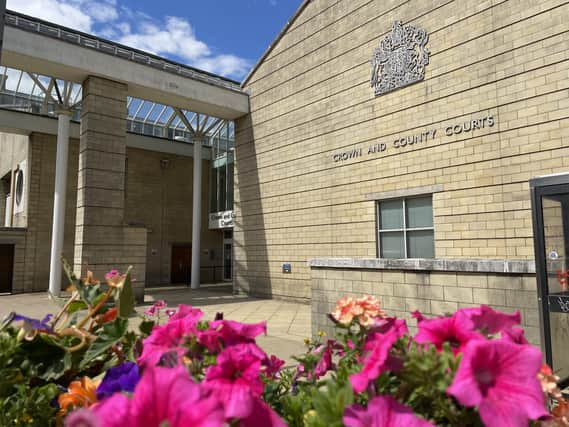Northampton Crown Court feels impact of barrister walkout over pay


The ongoing barristers’ industrial action over pay is continuing to have an impact at Northampton Crown Court.
A number of defendants appeared unrepresented at court this morning (Friday, August 5) as local barristers continued their strike over paltry legal aid rates on offer that have left many lawyers walking away from the criminal bar for good.
Advertisement
Hide AdAdvertisement
Hide AdOne defendant was this morning informed that his rape trial will now be unlikely to go ahead as a result of the action, and a judge had to explain to a Vietnamese man who doesn't speak English and is accused of running a cannabis operation why his barrister was not present in court.
Barristers have been operating a ‘no-returns’ policy since April – which means they do not cover each others’ cases when their colleagues are tied up – and have been taking part in intermittent strikes since June.
What did the judge say this morning?
His Honour Judge David Herbert QC, a former respected criminal barrister, said that he was offering no comment on the strike action itself, but had to directly address a defendant who had turned up for a hearing ahead of his trial on Monday – for which he and witnesses have already been waiting 14 months. Judge Herbert said: “Defence barristers are taking part in strike action and coming to court one-week-on, one-week-off.
"It’s causing courts difficulties. I make no comment about it.
Advertisement
Hide AdAdvertisement
Hide Ad"Barristers are also not doing each other’s returns and your situation appears to be up in the air.
"We’ve just got to deal with it as best we can.”
Why are barristers striking?
Although there is a presumption that criminal barristers earn big bucks, this is not usually the case – especially for juniors. Jo Sidhu QC, chair of the Criminal Bar Association, says barristers had suffered an average decrease in real earnings of 28 per cent since 2006. He also said that those in the first three years of practice earn less than the minimum wage, a median of only £12,000.
Their hours are incredibly long and stressful and the calling is not always compatible with family life.
This has led to many leaving the profession.
The bar also says that the complicated payment system is inherently unfair. Barristers are paid an initial fee when they take on a case – ‘receive instructions’ – and then a daily rate for a trial. But many cases never make it to trial because the defendant pleads guilty. Barristers are only paid at the completion of a case, which can sometimes mean work spread out over several years is not paid until the end of a trial.
Advertisement
Hide AdAdvertisement
Hide AdThey say that women, people from minority groups and those from poor socio-economic backgrounds are leaving the bar in disproportionate numbers because of the poor pay and that the severe shortage of barristers will have an existential effect on the entire criminal justice system which is beset by huge backlogs caused by generational under-funding.
A 15 per cent pay rise recently offered by Justice Secretary Dominc Raab was rejected because it applies only to new cases and not all those stuck in the backlog.
Jo Sidhu said: “We have made specific and reasonable demands that Government must act without further delay to address the chronic underfunding of the AGFS and, in particular, to implement an immediate and substantial improvement to fees in order to halt the alarming exodus of criminal barristers from publicly funded work.
“Criminal barristers can no longer afford to wait and, with every passing week, increasing numbers are leaving our ranks to find alternative work that offers a viable career. Without sufficient prosecutors and defenders, thousands of victims and accused will continue to face years of delay and the backlog in cases will grow ever longer.”
How has the strike affected our local court?
Advertisement
Hide AdAdvertisement
Hide AdSeveral cases have had to be delayed, including some that have already been impacted by the existing delays in the criminal justice system. Although Northampton is still managing to operate a fairly normal routine, some bigger court centres have faced severe disruption. Some cases in Northampton have been picked up by the court’s regular higher court advocates – solicitors who are allowed to practise in the crown court.
